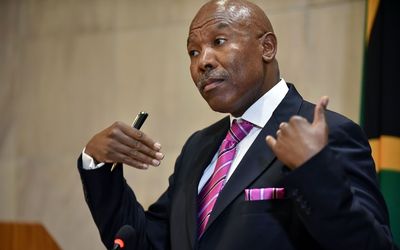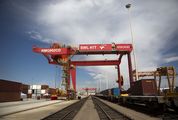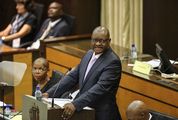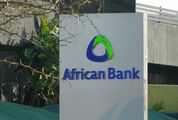Will Brexit lead to recession in SA?
by Agency Staff
2016-06-29 08:15:33.0
SINTRA — The UK’s vote to leave the EU will have a negative effect on SA’s economic growth, says Reserve Bank governor Lesetja Kganyago.
“We would not venture into a recession at this stage, but there is no doubt that it will slow the South African economy from the weak growth that we already have,” Kganyago told Bloomberg TV at the European Central Bank Forum in Sintra, Portugal.
The UK leaving the EU would hurt the global economic outlook and, indirectly, SA’s own growth outlook, particularly in 2017 given that the bulk of the effect of Brexit will only be more clearly visible then, BNP Paribas Cadiz economist Jeff Schultz said.
“It is not a baseline view of ours at this stage that the South African economy will slip into recession this year, though the Brexit outcome has certainly increased the risks, given increased global economic headwinds,” Schultz said.
The UK is SA’s fifth-largest trading partner and a slowdown as a result of Brexit may hurt demand for SA’s exports. The economy shrank by 1.2% in the first quarter, as mining and farming output slumped due to low mineral prices and a drought, the slowest pace since the 2009 recession
“It has affected sentiment and investors were looking for safe assets. We are not seen as one of the safe assets,” said Kganyago.
The safe assets included gold and the US dollar.
Economists expect emerging-market currencies such as the rand, which are considered riskier assets, to remain volatile not only on Brexit but also on developments in the US and China.
The major downside risks for emerging markets lay in any hit to investor risk appetite triggered by US Federal Reserve monetary policy tightening, or renewed concerns about economic growth in China, not events in the UK, Capital Economics emerging markets economist William Jackson said.
The Bank left the interest rate unchanged at 7% last month after having raised it four times since July 2015.
It is due to announce its next decision on July 21.
Brexit will not make much change to the Bank’s interest-rate outlook, Kganyago said.
“There are so many moving parts at the moment,” he said.
“In looking at the effect of the global economy on SA, we look beyond the UK.”
Bloomberg with Ntsakisi Maswanganyi

Reserve Bank governor Lesetja Kganyago. Picture: FREDDY MAVUNDA
SINTRA — The UK’s vote to leave the EU will have a negative effect on SA’s economic growth, says Reserve Bank governor Lesetja Kganyago.
“We would not venture into a recession at this stage, but there is no doubt that it will slow the South African economy from the weak growth that we already have,” Kganyago told Bloomberg TV at the European Central Bank Forum in Sintra, Portugal.
The UK leaving the EU would hurt the global economic outlook and, indirectly, SA’s own growth outlook, particularly in 2017 given that the bulk of the effect of Brexit will only be more clearly visible then, BNP Paribas Cadiz economist Jeff Schultz said.
“It is not a baseline view of ours at this stage that the South African economy will slip into recession this year, though the Brexit outcome has certainly increased the risks, given increased global economic headwinds,” Schultz said.
The UK is SA’s fifth-largest trading partner and a slowdown as a result of Brexit may hurt demand for SA’s exports. The economy shrank by 1.2% in the first quarter, as mining and farming output slumped due to low mineral prices and a drought, the slowest pace since the 2009 recession
“It has affected sentiment and investors were looking for safe assets. We are not seen as one of the safe assets,” said Kganyago.
The safe assets included gold and the US dollar.
Economists expect emerging-market currencies such as the rand, which are considered riskier assets, to remain volatile not only on Brexit but also on developments in the US and China.
The major downside risks for emerging markets lay in any hit to investor risk appetite triggered by US Federal Reserve monetary policy tightening, or renewed concerns about economic growth in China, not events in the UK, Capital Economics emerging markets economist William Jackson said.
The Bank left the interest rate unchanged at 7% last month after having raised it four times since July 2015.
It is due to announce its next decision on July 21.
Brexit will not make much change to the Bank’s interest-rate outlook, Kganyago said.
“There are so many moving parts at the moment,” he said.
“In looking at the effect of the global economy on SA, we look beyond the UK.”
Bloomberg with Ntsakisi Maswanganyi























